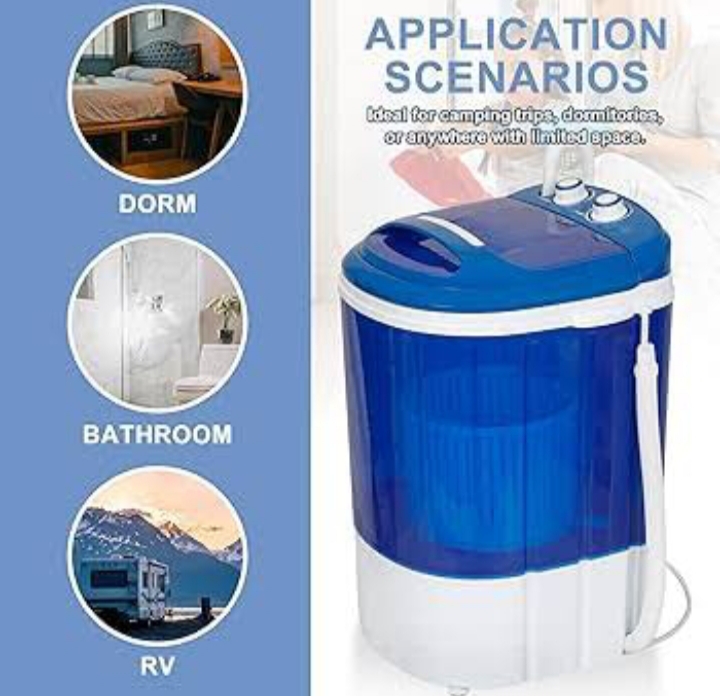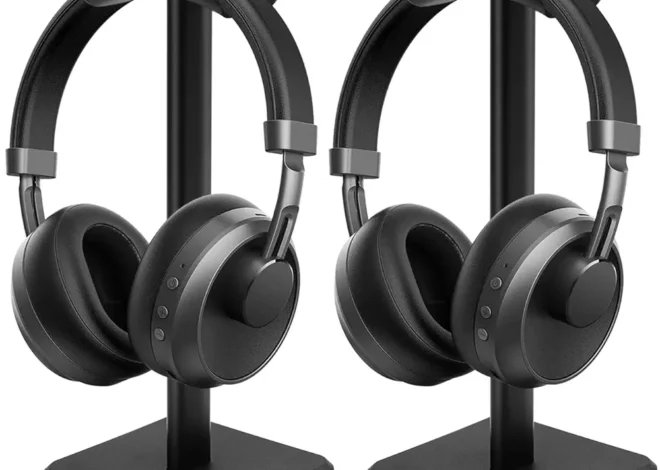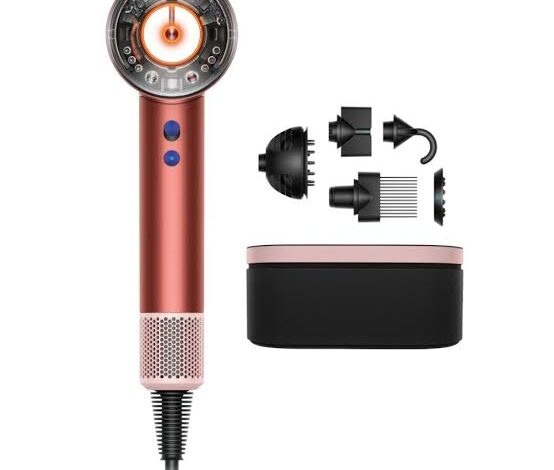
Portable Washing Machine: Convenience on the Go
Introduction to Portable Washing Machine
Portable washing machine have emerged as a practical solution for individuals and families who require efficient laundry options without the constraints of traditional washers. Designed to offer convenience, these compact appliances can easily be moved and stored, making them particularly appealing for urban residents, campers, and travelers. Unlike their full-sized counterparts, portable washing machines feature a lightweight design, allowing users to transport them with minimal effort.
The growing popularity of portable washing machine can be attributed to a variety of factors. First and foremost, they meet the needs of consumers living in limited spaces, such as small apartments or student housing, where full-sized washing machines simply cannot fit. In addition, the portability factor makes them an ideal choice for recreational vehicles (RVs) and traveling enthusiasts who value the ability to do laundry on the road without relying on laundromats. As a result, these machines represent a significant advancement in laundry technology, providing users with both flexibility and convenience.
Another key aspect driving the appeal of portable washing machines is their efficiency. Many models now come equipped with modern features such as multiple wash cycles, energy-saving modes, and water recycling options, which cater to the environmentally conscious consumer. Furthermore, portable machines often require less water and energy compared to conventional washing machines, thus lowering utility bills and reducing environmental impact.
Overall, portable washing machines encapsulate a blend of practicality and technological advancement. They offer consumers a viable option for maintaining cleanliness and hygiene in their garments while catering to their on-the-go lifestyles. As more individuals recognize the benefits of these appliances, the market for portable washing machines continues to expand, paving the way for innovative designs and features that enhance user experiences in various settings.
Types of Portable Washing Machines
Portable washing machines come in various types, each tailored to meet diverse laundry needs and preferences. The three main categories are fully automatic, semi-automatic, and manual machines, with each offering unique functionalities and conveniences to users.
Fully automatic portable washing machines are designed for ease of use and automation. Users simply load their laundry, add detergent, and select the wash cycle. The machine manages the entire process, including rinsing and spinning, with minimal user intervention. Their compact design makes them ideal for apartments, RVs, or small spaces where convenience is a priority. These machines typically feature advanced technology, such as various wash programs, which can cater to different fabric types and levels of soiling.
Semi-automatic portable washing machines require a bit more manual effort, making them suitable for individuals who prefer greater control over their washing process. Users need to fill the machine with water, switch it on for washing, and then change the water for rinsing. While this type requires more involvement, it is generally more affordable and consumes less power. Semi-automatic machines are perfect for those living in areas with limited electricity or needing a more budget-friendly laundry solution.
Finally, the manual portable washing machines are the simplest form, often resembling a bucket or tub. These devices require physical effort to agitate the clothes and are suitable for individuals who enjoy a more hands-on approach. They are great for camping, traveling, or off-grid living, where electrical setups are not feasible. Despite their labor-intensive nature, manual machines offer an eco-friendly, low-cost alternative for washing clothes.
In summary, the choices among portable washing machines vary significantly in terms of functionality, efficiency, and user engagement. Understanding the distinctions between fully automatic, semi-automatic, and manual models is essential for selecting the appropriate washing solution that aligns with one’s lifestyle and laundry requirements.
Key Features to Consider
When selecting a portable washing machine, it is crucial to evaluate several key features to ensure the appliance meets your needs effectively. First and foremost, capacity plays a significant role in determining how much laundry you can handle in one cycle. Portable washing machines typically range from 5 to 11 pounds in capacity, making it essential to select a model that aligns with your laundry requirements, especially if you frequently wash larger items.
Another important aspect to consider is spin speed. Spin speed, measured in revolutions per minute (RPM), affects how dry your clothes will be after washing. Higher spin speeds can effectively reduce drying time by extracting more water, which is particularly beneficial for individuals who frequently wash heavier fabrics.
Water and energy efficiency are also vital factors. Models with Energy Star certifications are designed to minimize energy consumption while providing optimal cleaning performance. Additionally, consider the water consumption of each machine and choose one that utilizes less water without compromising on cleaning efficiency. This consideration is particularly important for those who live in areas with strict water usage guidelines.
Noise levels can significantly impact your washing experience, particularly in confined living spaces like apartments or dorms. Portable washing machines come with varying noise levels, and opting for a quieter model can enhance your overall satisfaction. Reviewing user feedback on noise performance can assist in making a more informed decision.
Finally, the ease of use should not be overlooked. Look for features such as intuitive controls, clear display panels, and lightweight design that facilitate portability. Some models even offer pre-programmed settings, allowing for user-friendly operation. Before purchasing, assess how well the machine aligns with your lifestyle and preferences to ensure a convenient and efficient laundry experience.
Benefits of Using a Portable Washing Machine
The advantages of utilizing a portable washing machine are compelling, particularly for individuals with limited space or those seeking flexibility in their laundry routines. One of the primary benefits is the significant space-saving aspect of these appliances. Unlike traditional washing machines that often occupy substantial floor space, portable models can be easily stored in closets or corners when not in use. This feature makes them ideal for small apartments, dorm rooms, or even RVs where every square inch counts.
Cost-effectiveness is another critical benefit associated with portable washing machine These models generally come at a lower price point compared to their full-sized counterparts, making them accessible for individuals on a budget. Additionally, their compact design leads to reduced water and energy consumption, further lowering utility bills. For those living independently, this can translate into significant savings over time, which is particularly beneficial for students or young professionals just getting started in life.
Convenience is an essential aspect that portable washing machines excel in, allowing users to do laundry at their convenience. Unlike traditional washers that may require time-consuming trips to shared laundry facilities, portable machines can be operated right in the comfort of one’s home. This flexibility enables users to wash smaller loads as needed, catering to individual requirements and avoiding the buildup of an overwhelming laundry pile.
Moreover, portable washing machines appeal to environmentally-conscious individuals. By using less water and energy, they promote sustainable living practices. Users can wash their clothes while minimizing their ecological footprint, making them a responsible choice for modern consumers. Real-life examples include those who travel frequently, allowing them to maintain impeccable laundry standards even on the go, or families prioritizing eco-friendly solutions without compromising on convenience. The benefits outlined showcase that choosing a portable washing machine is a pragmatic solution for diverse laundry needs.
Setting Up Your Portable Washing Machine
Establishing your portable washing machine requires careful attention to detail to ensure its effectiveness and longevity. First, identify a suitable location within your home or living space. The surface should be even and sturdy, facilitating proper leveling of the machine. Most portable washing machine come equipped with adjustable feet to help achieve this balance, reducing vibrations during the wash cycle.
Once you have the machine positioned correctly, the next step involves connecting it to a water source. Most models will utilize a standard faucet connection. Begin by checking the attachment compatibility with your faucet, as adapters may be necessary. To connect the inlet hose, align it with the faucet and securely fasten it to prevent leaks. Lastly, ensure that the hose is routed toward the machine without kinks or twists to maintain optimal water flow.
Next, drainage considerations play a vital role in the functionality of the portable washing machine. Depending on the model, you may need to either place the drain hose into a sink or install a dedicated drainage system. Ensure that the hose is positioned securely so that wastewater can flow freely, avoiding any obstructions that could lead to overflow or backup.
It’s essential to observe safety precautions during the installation process. Make sure the washer is unplugged while connecting hoses to prevent any electrical hazards. Once everything is in place, plug in the unit and run a short cycle without laundry to check for leaks or operational issues. Familiarize yourself with the user instructions specific to your model, as these will provide tailored guidance regarding settings, load limits, and best practices for maintenance.
Adhering to these setup instructions will not only enhance the functionality of your portable washing machine but also contribute to its optimal performance over time.
Tips for Efficient Usage
To maximize the efficiency and lifespan of your portable washing machine, it is crucial to implement several best practices during operation. Start by adhering to the recommended load sizes specified by the manufacturer. Overloading the machine can strain its motor and impair its cleaning performance. Conversely, underloading may lead to unnecessary water and energy consumption. Aim for a balanced load that allows the washer to work effectively while conserving resources.
The choice of detergent is another vital factor in achieving optimal washing results. Always select a high-efficiency (HE) detergent designed specifically for portable washers, as these products create less suds and enhance cleaning power while minimizing wear on the machine. It is essential to follow the manufacturer’s guidelines regarding the amount of detergent to use. Too much detergent can lead to buildup and poor rinsing, while too little may not effectively clean your laundry.
Regular maintenance is integral to maintaining your portable washing machine’s performance. After each use, ensure to clean the lint filter, if applicable, and wipe down any surfaces to prevent mold growth. Furthermore, periodically inspect hoses and connections for leaks or damages, as these can hinder efficiency and potentially cause water damage. To ensure lasting performance, consider descaling your machine every few months to remove mineral buildup, particularly in areas with hard water.
Lastly, energy-saving practices can significantly impact both your utility bills and your machine’s longevity. Running full loads during off-peak hours can enhance energy efficiency. Additionally, consider air-drying your laundry whenever possible, as this practice not only preserves fabric quality but also reduces wear on your washing machine’s components. By following these tips, users can effectively extend the lifespan of their portable washing machines while enjoying the convenience they offer.
Common Issues and Troubleshooting
Portable washing machines offer convenience and flexibility, but like any appliances, they are not immune to issues. Understanding common problems can save users from unnecessary frustration and expense. One frequent issue encountered is leakage. This usually occurs due to improperly connected hoses or worn-out seals. To troubleshoot, users should inspect all connection points and ensure that the hoses are tightly secured. If the issue persists, replacing the rubber seals may be necessary to eliminate leakage effectively.
Another common complaint is poor washing performance, which can manifest as clothes not coming out clean. This issue might stem from overloading the machine, using inadequate detergent, or selecting the wrong washing cycle. To address this, users should adhere to the manufacturer’s load capacity recommendations, choose high-efficiency detergent, and select the appropriate cycle for the type of laundry being washed. Regular maintenance, such as cleaning the drum and filters, can also significantly enhance washing performance.
Noisy operation is a third problem that users might encounter. While some noise can be expected during the washing process, excessive noise may indicate an issue. Common causes include unbalanced loads, loose components, or foreign objects inside the machine. To troubleshoot, users should rearrange the laundry in the drum to ensure balance and check for any items that could be causing the noise. Tightening loose components may also help resolve this issue.
Overall, being aware of these common issues can improve the user experience with portable washing machines. By following the suggested troubleshooting steps, users can maintain their machines and ensure they function effectively, ultimately enjoying the convenience of portable laundry solutions.
Comparing Top Brands and Models
As the popularity of portable washing machines continues to rise, several brands have emerged as frontrunners in this industry. Among them, brands such as Brand A, Brand B, and Brand C are well-regarded for their innovative designs and performance. Each has unique features that cater to various consumer preferences and usage scenarios.
Brand A is known for its compact design, making it ideal for small apartments or travelers. Its flagship model offers a capacity of 3.5 cubic feet, which can wash up to 15 pounds of laundry in a single cycle. Users have praised its efficient cleaning capabilities and user-friendly interface. With a price point around $350, it is considered affordable compared to other brands while providing excellent value.
On the other hand, Brand B focuses on high-efficiency washing. Its portable machines are equipped with advanced technology that minimizes water consumption and energy usage. Many users have noted the impressive wash quality and the ability to handle bulky items like blankets and comforters. Priced at approximately $400, this brand may be slightly more costly, but many feel the energy savings justify the investment.
Brand C appeals to those looking for versatility. Their machines can function not only as washing machines but also as spin dryers, facilitating a complete laundry solution. Reviewers have commented positively on the effective spin cycle, reducing drying time significantly. With prices starting at $300, this option provides great flexibility for users who require multi-functionality.
In examining various factors such as capacity, energy efficiency, unique features, and pricing, prospective buyers can find a portable washing machine that aligns with their specific needs and budget. Investing some time to weigh these options can greatly enhance the laundry experience, especially for those living in tight spaces or frequently on the move.
Conclusion: Is a Portable Washing Machine Right for You?
As we have explored throughout this guide, portable washing machines offer a range of features that cater to the needs of individuals and families with specific laundry requirements. Before deciding if investing in a portable washing machine is suitable for you, it is crucial to consider your living situation, laundry habits, and overall lifestyle. For those residing in apartments, small homes, or temporary accommodations, portable washers can provide a viable alternative to traditional units without the need for extensive plumbing or dedicated laundry space.
One of the primary advantages of portable washing machines is their convenience. These compact appliances can easily fit into tight spaces and can be used in various settings, including rental properties, RVs, or during travel. Their lightweight design makes them easy to move and store, enhancing flexibility for those with changing living situations. Additionally, the energy efficiency and reduced water usage of these machines make them an appealing choice for environmentally-conscious individuals.
However, there are some considerations that potential owners should evaluate. The capacity of portable washing machines is generally smaller than that of standard models, which can impact laundry efficiency for larger households. Furthermore, the need for accessibility to a water supply and a drain can limit where these machines can be used effectively. Therefore, it is essential to assess your regular laundry needs and determine whether the convenience of a portable machine can meet those demands.
In conclusion, a portable washing machine can be an excellent solution for those who value convenience and practicality in their laundry routine. By weighing the advantages and limitations in the context of your unique circumstances, you can make an informed decision about whether this appliance aligns with your laundry habits and overall lifestyle.






